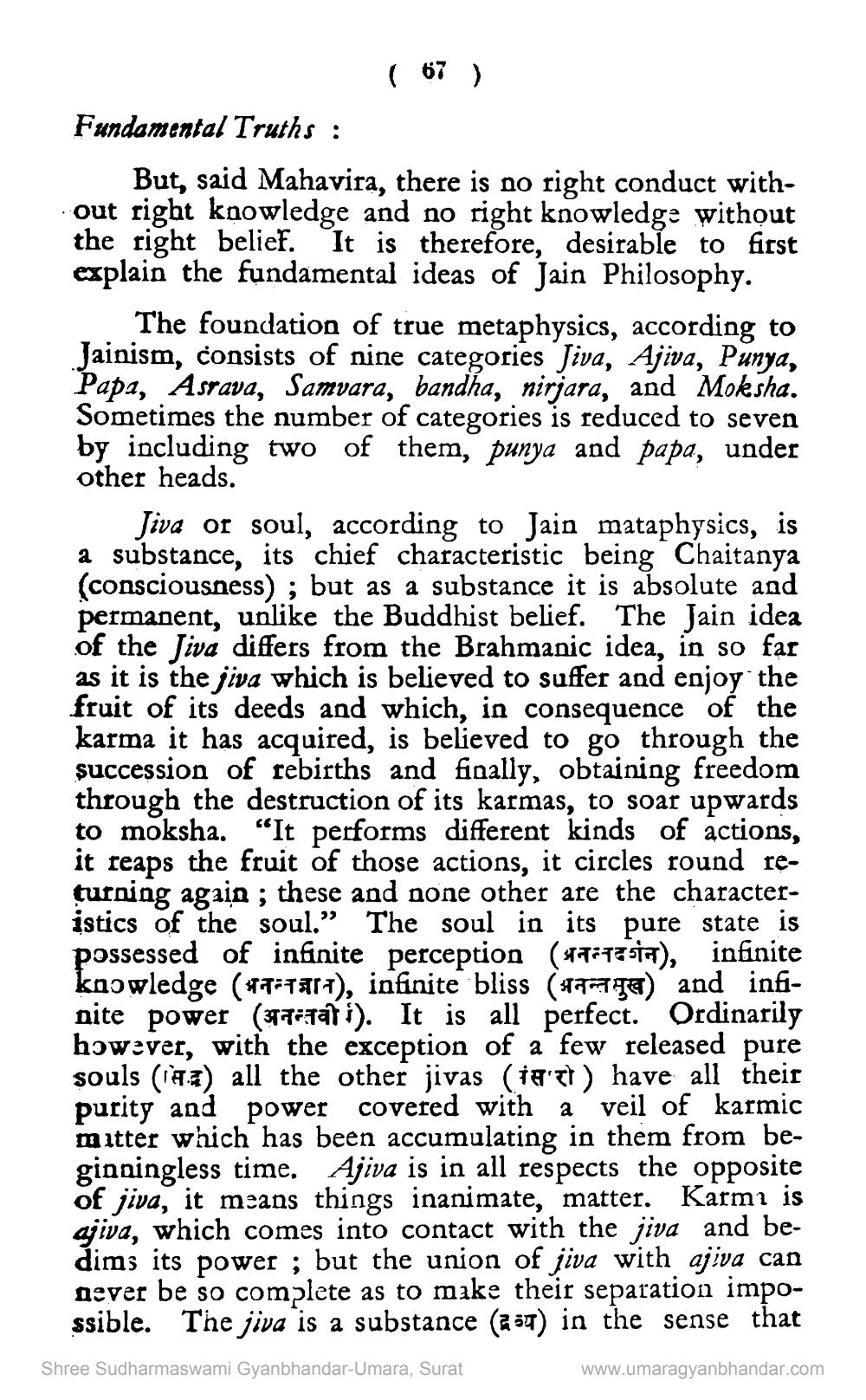________________
( 67 ) Fundamental Truths :
But, said Mahavira, there is no right conduct without right knowledge and no right knowledge without the right belief. It is therefore, desirable to first explain the fundamental ideas of Jain Philosophy.
The foundation of true metaphysics, according to Jainism, consists of nine categories Jiva, Ajiva, Punya, Papa, Asrava, Samvara, bandha, nirjara, and Moksha. Sometimes the number of categories is reduced to seven by including two of them, punya and papa, under other heads.
Jiva or soul, according to Jain mataphysics, is a substance, its chief characteristic being Chaitanya (consciousness) ; but as a substance it is absolute and permanent, unlike the Buddhist belief. The Jain idea of the Jiva differs from the Brahmanic idea, in so far as it is the jiva which is believed to suffer and enjoy the fruit of its deeds and which, in consequence of the karma it has acquired, is believed to go through the succession of rebirths and finally, obtaining freedom through the destruction of its karmas, to soar upwards to moksha. “It performs different kinds of actions, it reaps the fruit of those actions, it circles round returning again ; these and none other are the characteristics of the soul.” The soul in its pure state is possessed of infinite perception (Fitzsia), infinite knowledge (47T81), infinite bliss (19E) and infinite power (artati). It is all perfect. Ordinarily həwever, with the exception of a few released pure souls (19.) all the other jivas (IE'TI) have all their purity and power covered with a veil of karmic mitter which has been accumulating in them from beginningless time. Ajiva is in all respects the opposite of jiva, it means things inanimate, matter. Karmı is ajiva, which comes into contact with the jiva and bedims its power ; but the union of jiva with ajiva can a:ver be so complete as to make their separation impossible. The jiva is a substance (2:1) in the sense that
Shree Sudharmaswami Gyanbhandar-Umara, Surat
www.umaragyanbhandar.com




